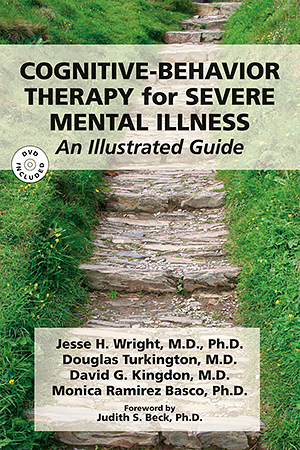Sections
Excerpt
This chapter describes the CBT techniques used to work with cognitive dysfunction in patients with severe mental illness. The most challenging situation is often found in individuals who exhibit schizophrenic thought disorder, such as “knight’s move thinking” (see the section “Major Thought Disorder” later in this chapter). Classically, no form of psychological treatment has been able to make much progress with seemingly incomprehensible dialogue. However, research on the emotional salience of disordered thinking has led to the description of a viable CBT model and the development of potentially useful intervention strategies. This approach is demonstrated here with video illustrations of the treatment of Daniel, a young man with rather severe disorganization of thought. In addition, methods are described for milder forms of schizophrenic thought disorder, such as pseudophilosophical thinking, concrete thinking, and thought blocking. Because cognitive impairment is a common manifestation of mood disorders, we also provide guidelines for using CBT to enhance cognitive functioning in bipolar disorder and severe or treatment-resistant depression.
Access content
To read the fulltext, please use one of the options below to sign in or purchase access.- Personal login
- Institutional Login
- Sign in via OpenAthens
- Register for access
-
Please login/register if you wish to pair your device and check access availability.
Not a subscriber?
PsychiatryOnline subscription options offer access to the DSM-5 library, books, journals, CME, and patient resources. This all-in-one virtual library provides psychiatrists and mental health professionals with key resources for diagnosis, treatment, research, and professional development.
Need more help? PsychiatryOnline Customer Service may be reached by emailing [email protected] or by calling 800-368-5777 (in the U.S.) or 703-907-7322 (outside the U.S.).



